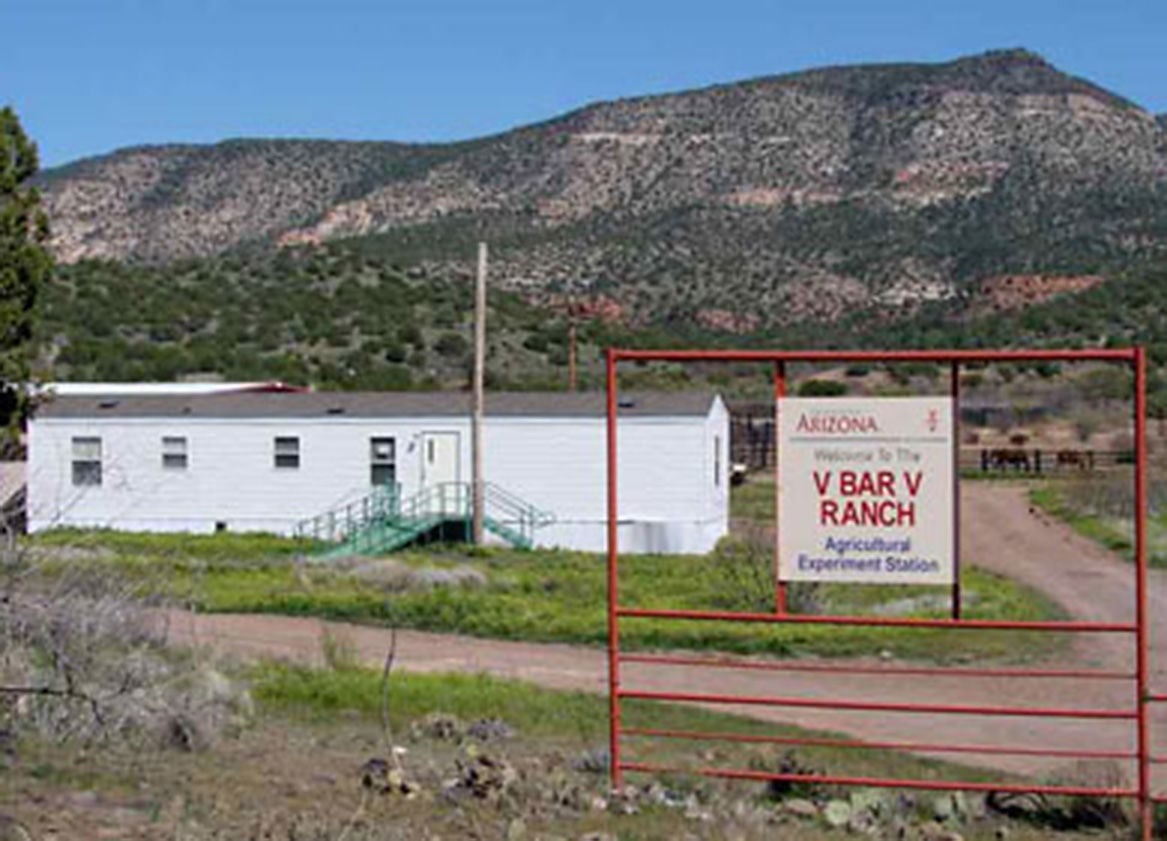A proposed land exchange between the University of Arizona and the U.S. Forest Service would correct an administrative error over ownership of ranch land near Camp Verde and give the university expanded training opportunities for veterinary students.
A Senate bill, which was introduced by Sens. Martha McSally and Kyrsten Sinema, deals with the land exchange involving property on the V Bar V Ranch, which the UA has operated in the Coconino National Forest since 1995.
In 2015, the Forest Service discovered the university did not have a clear title for those 13 acres within the the V-V Ranch and notified the UA. Both parties had been operating under the assumption the UA held the ownership title to what’s known as the ranch’s winter headquarters.
“The university and the Forest Service were under the mistaken assumption that the university had the title, and that assumption meant that as we built facilities on those 13 acres over the last 24 years, the Forest Service did not do any oversight or compliance,” said Mitch McClaran, UA associate director at the Arizona Experiment Station. “When we had revisions to our grazing permit, there was no mention of there being any problem. Then, when they looked into their records in 2015, they discovered that we didn’t have the title, and then our real estate people did the same thing.”
Since 1995, the UA has operated the entire ranch property as part of its Arizona Experiment Station, overseen by the College of Agriculture and Life Sciences. The V-V Ranch, with access to more than 70,000 acres, is used as a research center to address environmental, wildlife and domestic livestock issues.
The agreement, if passed, would give the UA ownership of the 13.3 acres of ranch land near Camp Verde where the current winter headquarters of V-V Ranch is located. In exchange, the UA would give the Forest Service a portion of 43 acres of ranch land in Mahan Park, near Happy Jack, which was purchased in 1994 for about $525,000 and included buildings, corrals, some livestock and a Forest Service grazing permit.
According to McClaren, owning the winter headquarters land and its existing facilities is important because it will allow the university to move forward with upgrading the facility and expanding its programs. Without a title, the university is unable to make crucial upgrades, including to the well that is meant to provide water for livestock. The ranch has about 500 head of cattle. Officials at the ranch have to bring water in by truck until the title issue is resolved.
As the university seeks accreditation for its new College of Veterinary Medicine, it is also hoping to expand the use of the 13 acres of the V-V Ranch as an educational facility for veterinary students.
“We’re excited by the opportunity for our students to learn more about beef cattle health by going up to the ranch and seeing how ranching is done and learning how to keep the cattle healthy,” said Julie Funk, dean of the College of Veterinary Medicine.
If the college receives its accreditation, and the bill to facilitate the land exchange is passed, the veterinary medicine program hopes to build classrooms, offices and dorms on the ranch that will help to expand its education efforts.
“We will continue operations just as we’ve done for the past 24 years where we’re training students, training ranchers and providing research opportunities for scientists,” said McClaren. “We’ll also upgrade our facility so that there’s better function and accommodate the Veterinary Medicine program as they need it.”
The Forest Service, which assisted in drafting the legislation, will receive an equally valued piece of land from the UA that is contiguous with the forest and adds value to its mission for conservation and natural resources, McClaren said.
The bill will now be referred to the Senate Committee on Energy and Natural Resources and a legislative hearing is expected to take place sometime this fall. If passed, the land exchange would take place within three years of the enactment.
With letters of support from the Arizona Cattle Grower’s Association, the Arizona Farm Bureau, the Yavapai Cattle Growers Association and the Coconino County Farm Bureau Cattle Growers Association, McSally and Sinema are not anticipating any opposition to the legislation.
“The V-V Ranch is the perfect place for University of Arizona students to get hands-on experience learning about cattle, ranching, and large animal medicine,” McSally said in a prepared statement. “This bipartisan bill will allow the UA to house and train the next generation of large-animal veterinarians and expand its community education initiatives.”





